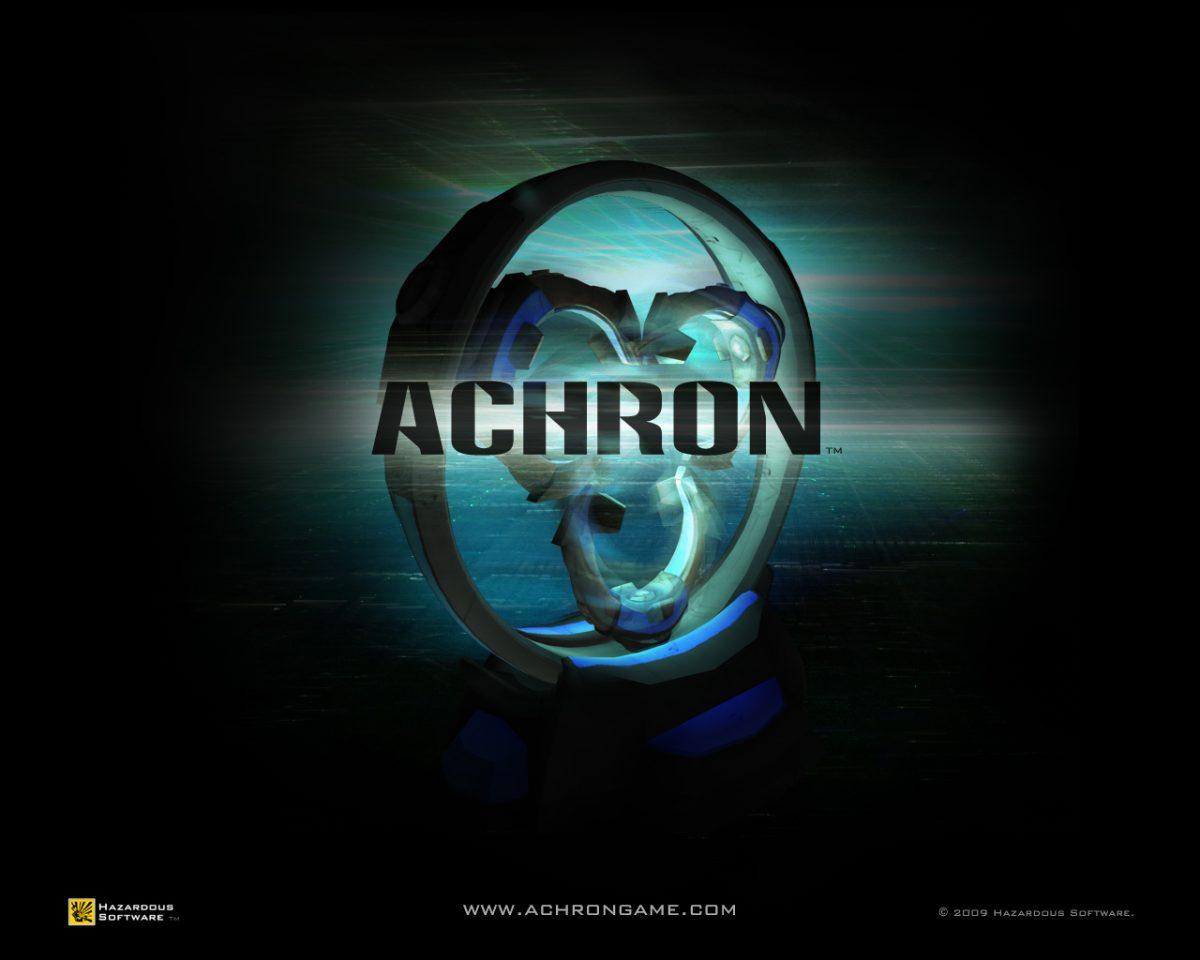
Achron logo courtesy of Hazardous Software.
Chris Hazard has been working on his game, Achron, for a very long time. Well, that’s not exactly true. Rather, he had the idea for the game some 12 years ago, but realized the computer technology necessary to run it wouldn’t exist until at least 2006. So for many years into the process of creating Achron, the world’s first true time-travelling real-time strategy game, Hazard dreamed big and waited patiently for the day that his vision could be realized.
That day is nearly here. Achron, which will be completely self-published by Hazard’s aptly named company, Hazardous Software, will be released online some time later this year for Mac, PC and Linux, and it’s been developing significant buzz in the meantime.
The core of the game is its engine, which allows for realistic simulation of time travel including considerations for all of those pesky problems like the grandfather conundrum and the butterfly effect that have baffled time-travel scientists for years.
”In 1999, I was playing Homeworld in three-dimensions,” Hazard said, “and I started thinking, ‘Why not a four-dimensional real-time strategy game?'”
The idea continued to percolate in Hazard’s mind for years to come, but it wasn’t until 2008 that he created an algorithm to try to accomplish his goal of a time-travel RTS, and began to focus on the consumer market.
”It got to the point,” Hazard said, “Where I just decided, ‘I have to make this.'” And thus, Achron was born.
To accomplish his dream, Hazard brought his longtime friend Mike Resnick aboard for the project. The two had discussed the possibility of the game as early as 2001 when they both worked at Motorola as software engineers.
”We would get together and work on the game, quietly, from that point on,” Resnick said, “But it wasn’t time technology-wise.”
Today, the two split up production duties and work full time on the project. Hazard handles what Resnick calls “low-level code,” or the underpinnings on which the entire game is built.
”Chris coded the Resequence Engine,” Resnick said. “which could technically be used to make whatever type of game you want. We decided to make Achron.”
Resnick, on the other hand, handles “high-level code,” which he describes as “logic for units, integration of art assets, logic for scenarios, etc.”
Although Hazard and Resnick are the only full-time members of the team, they have brought in some outside help to work on things such as art direction and user interface. But because they are working with little to no budget, Hazard and Resnick had to figure out a way to pay for outside talent.
”Many of the people working on the project have chosen profit sharing as payment,” Hazard said, “Or a combination of some money and some profit share.”
Profit sharing means that these employees will receive a portion of the proceeds of the game after it is released.
”They really believe in our game,” Hazard said, “And are betting on it being very successful.”
And there’s good reason to be optimistic. Hazardous presented Achron to an audience of 900 as part of the gameplay workshop sessions at 2009’s Game Developer’s Conference, and the reviews were unanimously positive.
Popular gaming website BoingBoing called Hazardous Software the “Indie darlings of GDC,” and gaming visionary Warren Spector, best known for his work on Deus Ex, wrote about the developer on his blog.
”Incredible,” Spector said. “I’ve been wanting to do another time travel game since I worked on Martian Dreams but didn’t know how to pull it off. These guys seem to have done it.”